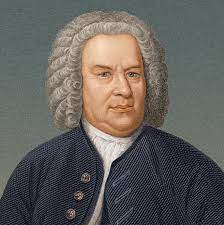Johann Sebastian Bach, often referred to as the maestro of Baroque music, left an indelible mark on the world of classical composition. Born on March 21, 1685, in Eisenach, Germany, Bach’s musical genius continues to inspire and captivate audiences centuries later. His profound understanding of harmony, counterpoint, and melodic intricacies established him as one of the most prolific composers of all time. This blog post delves into the life and legacy of Johann Sebastian Bach, shedding light on his extraordinary contributions to the musical landscape.
Early Life and Education:
Johann Sebastian Bach was born into a family of musicians, with his father and uncles serving as prominent court musicians. Bach’s musical journey began at a young age when he received his first musical instruction from his father. Orphaned at the age of ten, Bach moved to Ohrdruf to live with his older brother, Johann Christoph, who became his mentor and nurtured his musical talents. During his formative years, Bach honed his skills as an organist and violinist, eventually embarking on a path that would shape the future of Western classical music.
Career and Musical Achievements:
Bach’s career was marked by his unwavering dedication to his craft. He held various prestigious positions as a church organist and composer throughout his life. From his time as the court organist in Weimar to his appointment as Kapellmeister in Cöthen and later in Leipzig, Bach left an indelible mark in each role he undertook.
One of Bach’s most notable contributions lies in his extraordinary skill as a composer. He was a master of numerous musical forms, including choral works, concertos, sonatas, fugues, and keyboard compositions. His compositions displayed a deep understanding of structure, harmony, and melodic development, making him a true genius of his time.
Bach’s vocal works, including his magnificent cantatas and oratorios, are considered among his greatest achievements. Pieces such as the “St. Matthew Passion” and the “Mass in B Minor” showcase his ability to combine intricate counterpoint with expressive melodies, evoking powerful emotions in listeners. His choral works continue to be performed in concert halls and churches worldwide, captivating audiences with their spiritual and artistic depth.
Equally impressive are Bach’s keyboard compositions, including his preludes and fugues from “The Well-Tempered Clavier” and his numerous suites and partitas. These works exemplify his mastery of intricate counterpoint and technical brilliance. Bach’s keyboard music has become a cornerstone of the classical repertoire, inspiring countless generations of pianists and organists.
Legacy and Influence:
Despite achieving only limited recognition during his lifetime, Bach’s music gained prominence in the years following his death. His works were championed by later composers such as Mozart, Beethoven, and Mendelssohn, who recognized the brilliance of his compositions. It was Felix Mendelssohn’s revival of Bach’s “St. Matthew Passion” in 1829 that ignited a Bach renaissance and restored his rightful place in musical history.
Bach’s influence extends far beyond his contemporaries, with his music continuing to inspire musicians of all genres today. His innovative approach to harmony and counterpoint laid the groundwork for future musical developments, including the emergence of the Classical and Romantic periods. The profound emotional depth and intellectual rigor found in Bach’s works resonate with audiences across generations, bridging the gap between the past and present.
Conclusion:
Johann Sebastian Bach’s genius as a composer has left an enduring impact on the world of music. His mastery of various musical forms, his technical brilliance, and his ability to express profound emotion through sound are unparalleled. From humble beginnings, Bach rose to become a musical luminary, shaping the course of classical music for centuries to come. His works continue to be celebrated, performed, and cherished, proving that the melodies of this musical genius will forever echo through the halls of history.


Comments are closed